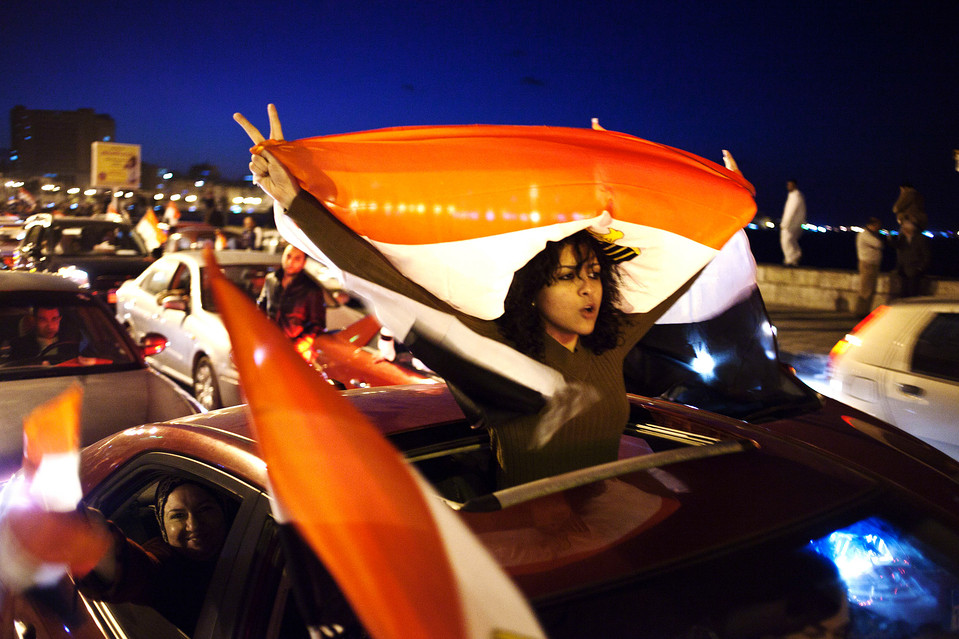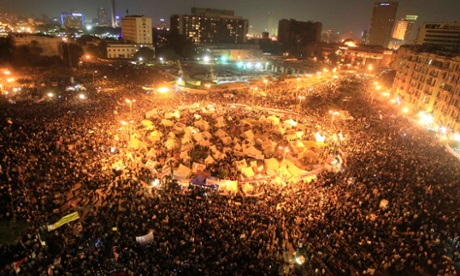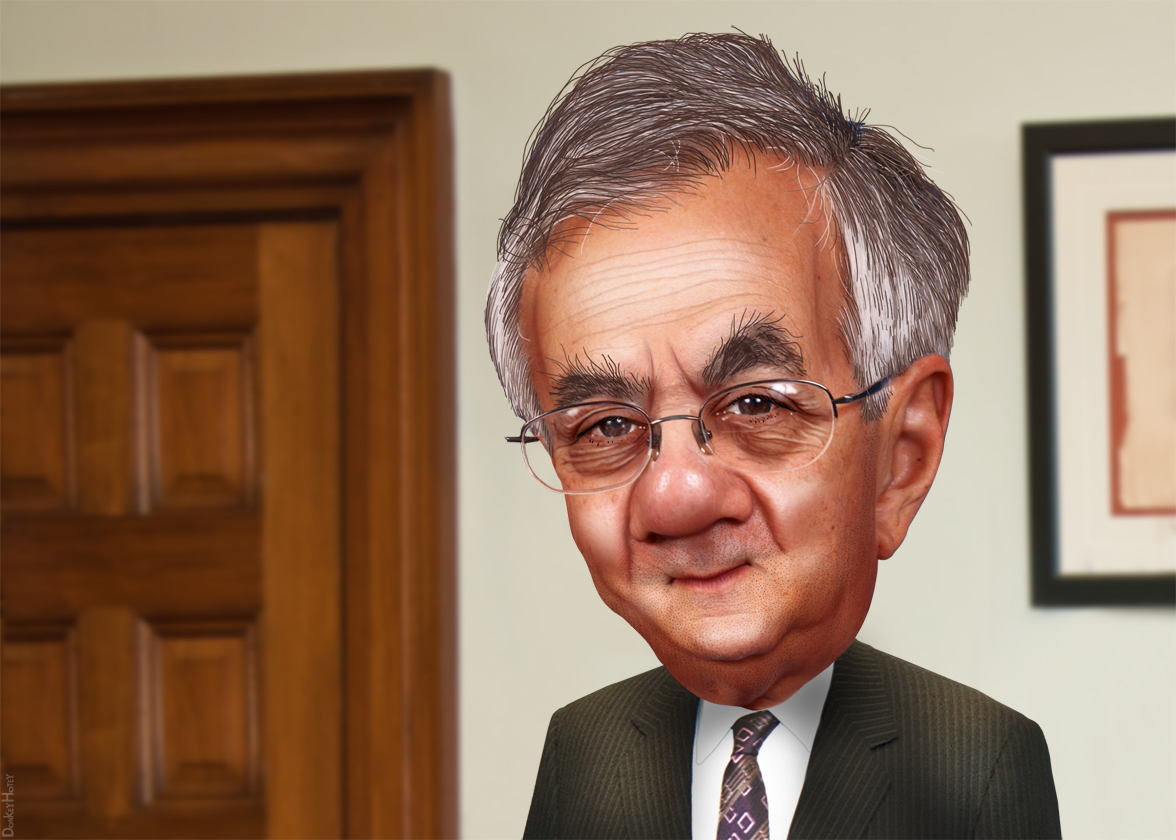Couchiching Institute’s annual conference in Geneva Park, near Orilla, Canada has been an ongoing event for 81 years. With a strong organizational name, and an even stronger constitution, Couchiching put on one of the most dynamic events I have ever had the opportunity to attend. This year’s conference entitled Arab Spring: Implications and Opportunities for Canada focused on the ongoing changes in the Middle East—their dynamics and the implications for Canada’s foreign policy. But it was more than just the Middle East, with business leaders, scholars, dissidents, politicians, and average Canadians conversing on a variety of topics, it morphed into a democratic forum for discussion. Although raining and gloomy at Geneva Park, the enthusiasm of the hundreds of participants could not be drowned out. Of particular importance were not just the various presentations, but rather the discussion groups that allowed audience members to interact directly with speakers. I had the great opportunity to discuss events in the region with a variety of presenters from the Syrian dissident Mohammad Al Abdallah to the Chief Political Columnist of the Israeli newspaper Ha’aretz Akiva Eldar. The un-parallel access to speakers in combination with the amalgamation of people attending the event, from representatives of the United Way to former ambassadors to the region, gave this 81st annual conference a truly Canadian feel. All faiths, ethnicities, cultures, ages and gender backgrounds were present, highlighting the mosaic of our society—all Canadians.
The Keynote Address
[captionpix align=”left” theme=”elegant” width=”320″ imgsrc=http://www.couchichinginstitute.ca/images/2012-conference/speakers/benchemsi.jpg
“captiontext=” Defender of secularism and Stanford University Professor Ahmed Benchemsi.”]
Ahmed Benchemsi, a famous Moroccan journalist, dissident, and visiting scholar at Stanford University provide the keynote speech entitled Islamism vs. Secularism (The Arab Spring Phase 2). Mr. Benchemsi provided an enlightening look at the dichotomy between Islamic law in his native country and the actual practices of Moroccan society. His overall argument, which was steeped in logical analysis, was that given the juxtaposition between the enforcement of Islamic law and the actions of average Moroccans to circumvent these rules the country should shift to a secular governing system. A favorite example of mine is when he stated satirically, with regards to pre-marital interactions between the sexes, which is illegal, that the “Average marriage age in Morocco for men is 31, for women it’s 27, think about it!” He further expanded upon his statements by stating that “societies based on lying and cheating are not sane, crippling the functioning of society.”
From this dichotomy, he moved on to talk about the Islamization of society, outlining the development of religion as a tool for domestic repression which mutates the true meaning and role of Islam. He argued that this creates a feeling of guilt among society, and the Islamists have played on this feeling in order to keep society in line. How did the Islamists gain the power to dictate the social and political paradigms and limits within Arab society? Benchemsi outlined the ways in which these groups, through social charity, grassroots organizations, and a network of solidarity created through these institutions have been able to sideline secular voices. Criticism was also targeted against the secularists of the Middle East. Benchemsi highlighted how a systematic defeatist feeling among these groups led to the belief that they are doomed to fail, the societies are too religious, and secularism will only be attractive to a Westernized elite. It was his view that in order to free the people from these oppressive practices that the secularists must mimic the Islamists and reach out to their constituency through speaking engagements and charitable works. With any conversation on the Middle East, particularly a three day discussion composed of multiple panels and two keynote speakers, there were bound to be a few controversial statements. Ahmed Benchemsi, in his keynote address set the tone. Stating that “religion is irrational” during the Q&A session after his amazing speech, you could feel the tension among a few of the participants in the room. I had a chance to talk with Mr. Benchemsi after the statement and he expanded upon his remark, a confirmation of what I had believed the scholar had meant. He told me that religious persons were not irrational, but under the laws of scientific enquiry, religion itself is irrational due to the concrete fact that its tenets cannot be proven. Overall the Moroccan dissident set the framework for what was to be a heartfelt, engaging and enthusiastic undertaking to outline the issues facing the Arab world during this tumultuous era.
Rami Khouri and Friday’s Panels
[captionpix align=”left” theme=”elegant” width=”320″ imgsrc=” http://ieo.okstate.edu/media/events/rami_khouri.jpg” captiontext=”Rami Khouri discussed minorities and majority populations in the Middle East.”]
For Friday morning’s panel, in an exciting last minute development, Rami Khouri, the Director of the Issam Fares Institute and a frequent analyst on Al Jazeera gave a special presentation on Minorities, Majorities and Citizens in Relegitimized Arab States. A Christian Palestinian based in Lebanon, Khouri spoke at great lengths about the similarities of minorities and majorities in these transformative Arab countries—how the calls of the majority for bread, dignity, and equal rights —are echoed by the minorities in the region as well. Utilizing this discourse, he pulled away from the Western-centric view of the Middle East as an area home to clashes between religious and identity groups—a hotbed of sectarianism. Panel by panel, myths surrounding the Middle East, from “Arab exceptionalism” the previous theory that populations in the Middle East were immune to the democratic revolutions that stretched the world in the 1990s to the conspiracies of Western involvement in Arab politics were all shown to be invalid.
Overall, the humanity of Arab peoples, whether Tunisia, Palestinian, or Syrian, was ever-present. It was highlighted time and time again that the Arab Spring was an uprising against tyranny, a human event, a change which should be told through the individual experiences of the people of the region, including by speaker Hind Kabawat. Her passionate and tearful speech about the issues facing the Syrian population, from young to old, shook the room and transformed the presentation hall to a portal into the suffering cause by the atrocities of the Assad regime. As much as it was a story of the people, it also provided a picture of the Syrian capital Damascus, one in which fear from government retribution and fighting between the army and rebels, was a harsh reality. Her cry “we want dignity” is something that will stay with me for a very long time, putting a new reality into the words that I write as The NATO Council’s Senior Middle East Analyst.
Moving into the virtual world, a much highlighted aspect of the revolutions and one that helped propel the revolutions at such a fast pace, Friday evening’s panel was entitled Tweeting and Covering the Revolution. Of particular importance was the first hand account of Mohammad Al Abdallah and Ali Abunimah, one, a Syrian dissident, the other a Palestinian activist. Mr. Abunimah, who is also the Executive Director of Electronic Intifada, set out to peel back the role of social media in the Arab Spring, dispelling myths of what I would describe as a chicken or the egg question—did social media spark the revolution or was it just a useful conduit through which to spread one’s message and continue the struggle against authoritarianism? The real protest against authoritarianism, according to Abunimah, was fought in the streets and the factories, led by the people on the ground that shed blood and lost friends and family members in their struggle. Mohammad Al Abdallah highlighted the battle in the virtual world between the Syrian opposition and the regime. This cat-and-mouse game rapidly developed into an electronic war of images. When the Syrian regime would dismiss the videos of activists purportedly showing major protests composed of thousands of people, the regime’s websites vehemently denied they were taking place in Syria. The opposition, being an innovative bunch, quickly decided to show the day’s newspaper and a statute of Hafez, the dictator’s father, to confirm that the protests were indeed happening in the country’s towns and cities—much to the embarrassment of the Syrian authorities.
Geopolitics in the Middle East
Of particular importance to me was Saturday night’s panel entitled And There Goes the Neighbourhood which brought together the Chief Political Columnist of Haaretz, Akiva Eldar, the Director of the Laurier Centre for Global Relations, Paul Heinbecker, the Palestinian Academic, Nimer Sultany, and the former Minister of Foreign Affairs of Turkey, H.E. Yasar Yakis. Providing an overview of the foreign policy issues facing the Arab world, His Excellency Yasar Yakis went on to criticize the Turkish government for failing to employ a balanced approach towards Syria. It was his opinion that Ankara, believing Assad’s fall was imminent, put all their eggs in one basket, and lost the ability to influence developments within Syria with the uprising entering a bloody seventeenth month. Framing the geo-strategic importance of the Arab Spring was Akiva Eldar. According to the senior writer at Haaretz, the uprisings in the Middle East took place during a race for regional supremacy between America and Iran. Entering the fray late, according to Eldar, is Russia, who through siding with Syria and Iran has paralyzed the international realm in an effort to regain its position on the world stage.
Highlighting the changing dynamics created by the uprisings in Arab countries Nimer Sultany explained the two major effects of the Arab Spring. The first of which was that it exposed non-democratic regimes left intact, to the pressure to democratize. Autocrats from Morocco to Saudi Arabia are now worried that they will succumb to the same fates as their counterparts in Arab republics and are quickly toying with new ways of placating their constituencies. Furthermore, he believed that these uprisings have, for better or worse, escalated the decline of United States and Israeli domination of the region. Mr. Sultany was of the opinion that with the replacement of pro-Western dictators with what has come to be known as the “Arab Street”, the wishes of Arab constituencies will be divorced from those of America and the Jewish state, particularly in terms of the Palestinian issue. This was seen as a necessary development for the creation of a Two State Solution outside of the bias and pro-Israeli Oslo Peace Process.
[captionpix align=”left” theme=”elegant” width=”320″ imgsrc=”http://i.thestar.com/images/70/5d/3e3e26e34840a6dbd2e999a3b6e8.jpeg” captiontext=”Paul Heinbecker, the permanent Canadian representative to the UN, discussed the implications of the Arab Spring for Canada.”]
Paul Heinbecker rounded off the panel with a Canadian perspective on the Arab Spring and tackling the implications it had for our foreign policy. The former Ambassador to Germany and a permanent representative to the United Nations, echoed Rami Khouri’s statement that “the West should chill out”, adding, “Autocracy gives you straight roads, democracy gives you curves, switch backs and dead ends.” In his refreshing speech Heinbecker set out to neutralize Western fears of Islamic governance in the Arab world, highlighting the progress that has been made and how new Arab leaders are dealing with a variety of developments on the road to democracy that Europeans had hundreds of years to deal with. Overall, his message was simple, that as Canadians, living in a democratic and peace loving nation, we have the responsibility to ensure that our services, if needed, in a variety of areas from business to democratic development, be offered to the nations affected by the Arab Spring. This is a call which I echo, one that needs to be heard by all Canadians, young and old, newly immigrated and long established.
My Closing Remarks
Couchiching’s annual conference is something to be admired and cherished as an iconic Canadian event. The camaraderie among the various participants, the interaction with the speakers whether at lunch or in the discussion groups, provided an all-inclusive venue for discussion and debate. Geneva Park became my home for three days, a place where I felt comfortable talking with a variety of people from Canadian decision makers to university students. As a recipient of the Kurt Swinton scholarship and having had one of the best experiences of my life, I call on all Canadians who have pride in our country’s standing on the global stage to donate to this organization in order to ensure that it will have 81 more conferences such as this one. That being said, next year’s event will focus on Aboriginal issues in Canada, a pertinent and divisive issue, and I recommend that anyone reading this article attend, for it will truly be a significant discussion put on in the most professional manner.




